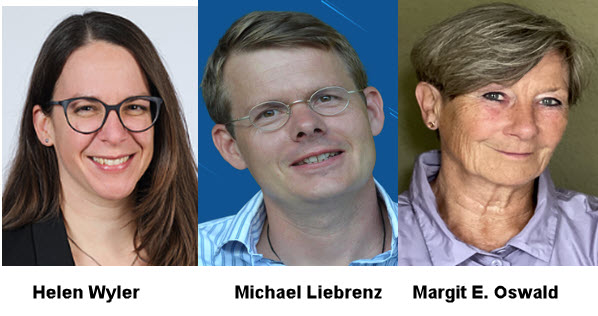Abstract
Excerpted From: Helen Wyler, Michael Liebrenz, and Margit E. Oswald, Do Black and White Innocent Mock Suspects Differ in How Forthcoming They Are Under the Strategic Use of Evidence Technique? First Findings and Their Theoretical and Practical Implications, 31 Psychology, Public Policy, and Law 295 (August, 2025) (Reference ) (Full Document Requested)
Th e strategic use of evidence (SUE) technique is effective in enhancing the differences between innocent and guilty mock suspects. However, research has shown that just world belief (JWB), a concept used to explain innocent suspects' forthcomingness, is lower in Black compared to White individuals. We examined whether Black and White innocent suspects differed in their responses in a SUE interview as theory would predict (practice-related objective) and whether the data empirically supported the hypothesized link between JWB and innocent suspects' forthcomingness (theory-related objective). We expected a lower JWB in Black participants, and, consequently, Black innocent suspects to be less forthcoming (i.e., less critical information volunteered and lower statement-evidence consistency) than White innocent suspects, with no difference predicted between Black and White guilty suspects. We additionally explored the role of trust in the police. In a hypothetical scenario study (N = 209) and a mock crime study (N = 131), significant differences in forthcomingness between innocent and guilty suspects were found. When comparing Black and White innocent suspects, the descriptive findings pointed in the expected direction, but the main analyses were not statistically significant, despite Black participants' significantly lower personal JWB and trust in the police scores. Moreover, neither variable was related to innocent suspects' forthcomingness. The results question the relevance of JWB in explaining innocent suspects' honesty. Yet, we contend that suggesting the SUE technique can be successfully applied to Black suspects despite JWB differences is premature. The risk of biases accumulating underscores the urgent need for further research.
e strategic use of evidence (SUE) technique is effective in enhancing the differences between innocent and guilty mock suspects. However, research has shown that just world belief (JWB), a concept used to explain innocent suspects' forthcomingness, is lower in Black compared to White individuals. We examined whether Black and White innocent suspects differed in their responses in a SUE interview as theory would predict (practice-related objective) and whether the data empirically supported the hypothesized link between JWB and innocent suspects' forthcomingness (theory-related objective). We expected a lower JWB in Black participants, and, consequently, Black innocent suspects to be less forthcoming (i.e., less critical information volunteered and lower statement-evidence consistency) than White innocent suspects, with no difference predicted between Black and White guilty suspects. We additionally explored the role of trust in the police. In a hypothetical scenario study (N = 209) and a mock crime study (N = 131), significant differences in forthcomingness between innocent and guilty suspects were found. When comparing Black and White innocent suspects, the descriptive findings pointed in the expected direction, but the main analyses were not statistically significant, despite Black participants' significantly lower personal JWB and trust in the police scores. Moreover, neither variable was related to innocent suspects' forthcomingness. The results question the relevance of JWB in explaining innocent suspects' honesty. Yet, we contend that suggesting the SUE technique can be successfully applied to Black suspects despite JWB differences is premature. The risk of biases accumulating underscores the urgent need for further research.
Keywords: strategic use of evidence, investigative interviewing, racial disparities, just world belief, phenomenology of innocence
Supplemental materials: https://doi.org/10.1037/law0000460.supp
[. . .]
From a theoretical stance, although JWB (and potentially also trust in the police) may still play a role under specific circumstances (see e.g., Scherr & Franks, 2015), the present findings together with those of Jordan and Hartwig (2013) suggest that the role of JWB in explaining innocent suspects' forthcomingness in investigative interviews needs to be reconsidered. It is conceivable that innocent suspects weigh up other aspects, such as available evidence and the consequences of getting caught in a lie, among others. A more comprehensive model of the underlying causes of innocent suspects' decision-making in investigative interviews seems to be necessary.
Kat Albrecht served as action editor.
Helen Wyler (iD) https://orcid.org/0000-0002-5803-9915
Michael Liebrenz (iD) https://orcid.org/0000-0001-8040-2744
Correspondence concerning this article should be addressed to Helen Wyler, Faculty of Behavioural Sciences and Psychology, University of Lucerne, Frohburgstrasse 3, 6002 Lucerne, Switzerland. Email:
Faculty of Behavioural Sciences and Psychology, University of Lucerne
Department of Psychology, Birmingham City University
Department of Forensic Psychiatry, University of Bern
Department of Psychology, University of Bern


